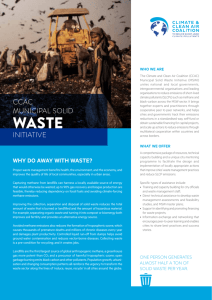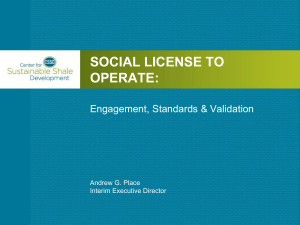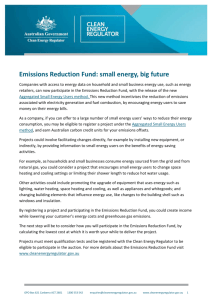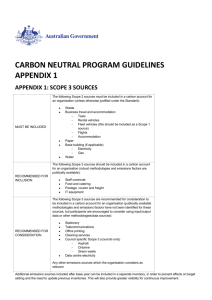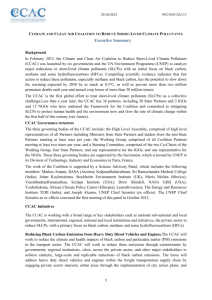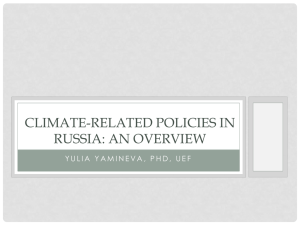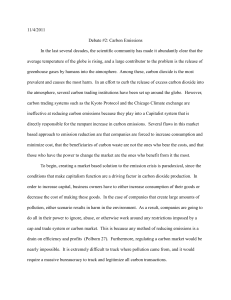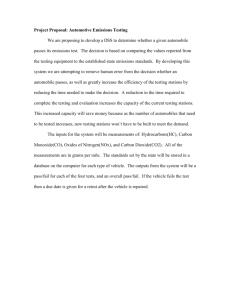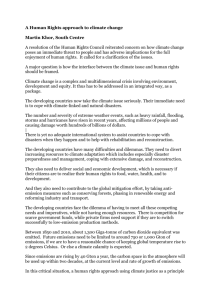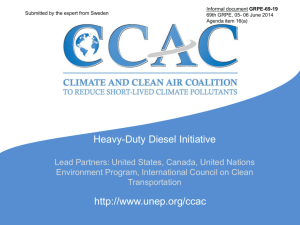COMPONENT ON TECHNOLOGY DEMONSTRATION AND
advertisement
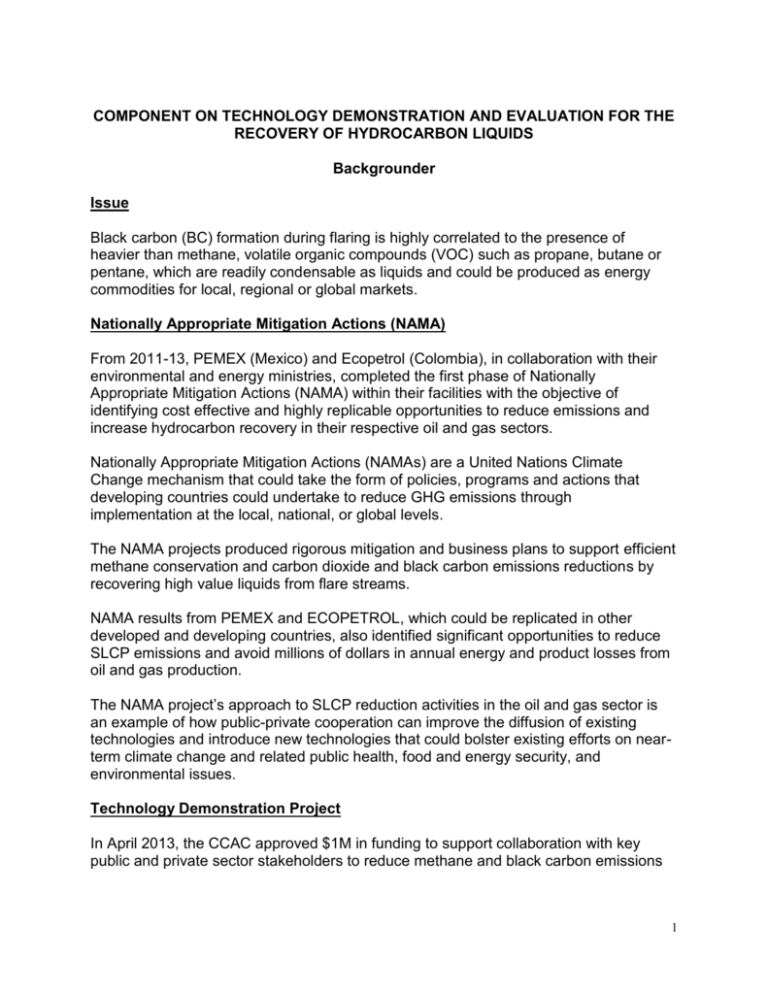
COMPONENT ON TECHNOLOGY DEMONSTRATION AND EVALUATION FOR THE RECOVERY OF HYDROCARBON LIQUIDS Backgrounder Issue Black carbon (BC) formation during flaring is highly correlated to the presence of heavier than methane, volatile organic compounds (VOC) such as propane, butane or pentane, which are readily condensable as liquids and could be produced as energy commodities for local, regional or global markets. Nationally Appropriate Mitigation Actions (NAMA) From 2011-13, PEMEX (Mexico) and Ecopetrol (Colombia), in collaboration with their environmental and energy ministries, completed the first phase of Nationally Appropriate Mitigation Actions (NAMA) within their facilities with the objective of identifying cost effective and highly replicable opportunities to reduce emissions and increase hydrocarbon recovery in their respective oil and gas sectors. Nationally Appropriate Mitigation Actions (NAMAs) are a United Nations Climate Change mechanism that could take the form of policies, programs and actions that developing countries could undertake to reduce GHG emissions through implementation at the local, national, or global levels. The NAMA projects produced rigorous mitigation and business plans to support efficient methane conservation and carbon dioxide and black carbon emissions reductions by recovering high value liquids from flare streams. NAMA results from PEMEX and ECOPETROL, which could be replicated in other developed and developing countries, also identified significant opportunities to reduce SLCP emissions and avoid millions of dollars in annual energy and product losses from oil and gas production. The NAMA project’s approach to SLCP reduction activities in the oil and gas sector is an example of how public-private cooperation can improve the diffusion of existing technologies and introduce new technologies that could bolster existing efforts on nearterm climate change and related public health, food and energy security, and environmental issues. Technology Demonstration Project In April 2013, the CCAC approved $1M in funding to support collaboration with key public and private sector stakeholders to reduce methane and black carbon emissions 1 from venting, leakage, and flaring of natural gas from operations worldwide by developing an increased global capacity for SLCP reductions. The project aims to demonstrate that technologies and practices could credibly and verifiably mitigate black carbon emissions by reducing or eliminating the loss of these readily condensable and marketable quantities of liquid hydrocarbons, into flare streams. CCAC funding will finance technological demonstrations and related activities, in partnership with oil and gas companies, which will demonstrate how emissions of BC and other SLCPs can be minimized or eliminated in a cost-neutral and sometimes profitable way. The following activities will be pursued: Measurement, mapping and monitoring to identify where venting and flaring of VOC-rich natural gas occurs, with a view to identifying economic opportunities to reduce SLCP emissions as well as to develop policy tools. Targeted demonstration projects to stimulate the commercial deployment of emerging technologies to reduce SLCPs by reducing venting and flaring. POINTS TO NOTE The CCAC’s results-based approach to SLCP emission reduction projects and could complement the work of existing international clean energy partnerships in addition to scaling-up public-private collaboration and investment. The projected reductions in SLCPs emissions have the potential to realize significant and measureable environmental, health and social co-benefits, which support the CCAC’s role as a transformative catalyst of change in the oil and gas sector. The project also supports the scaled up commercial deployment and dissemination of emerging leading-edge technologies for hydrocarbon liquid recovery that would otherwise not be exploited due to the use of conventional equipment and a limited understanding of the field. Partners: the World Bank’s Global Gas Flaring Reduction Initiative (GGFR), International Cryosphere Climate Initiative, Carleton University, Petroleum Technology 2 Alliance of Canada (PTAC), Further by Design, and Stockholm Environmental Institute (SEI). To find out more: Contact Philip Swanson at the CCAC Secretariat (philip.swanson.affiliate@unep.com) 3
